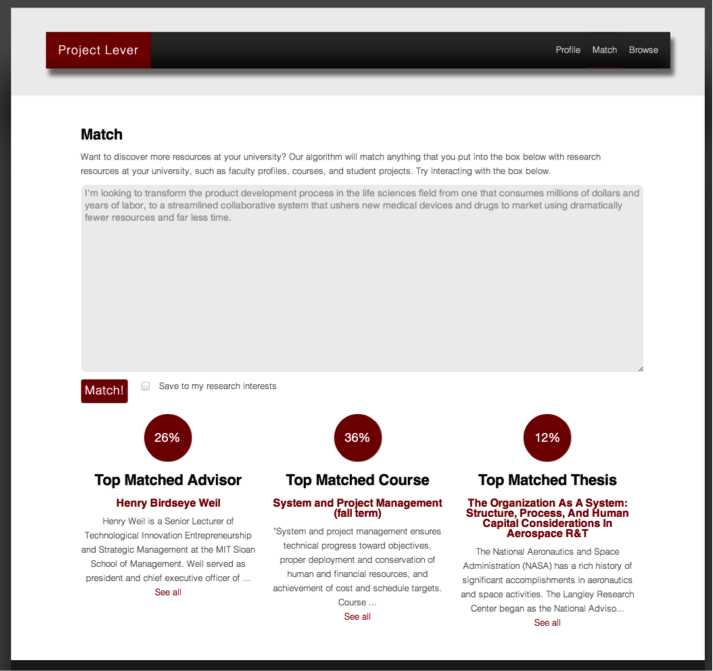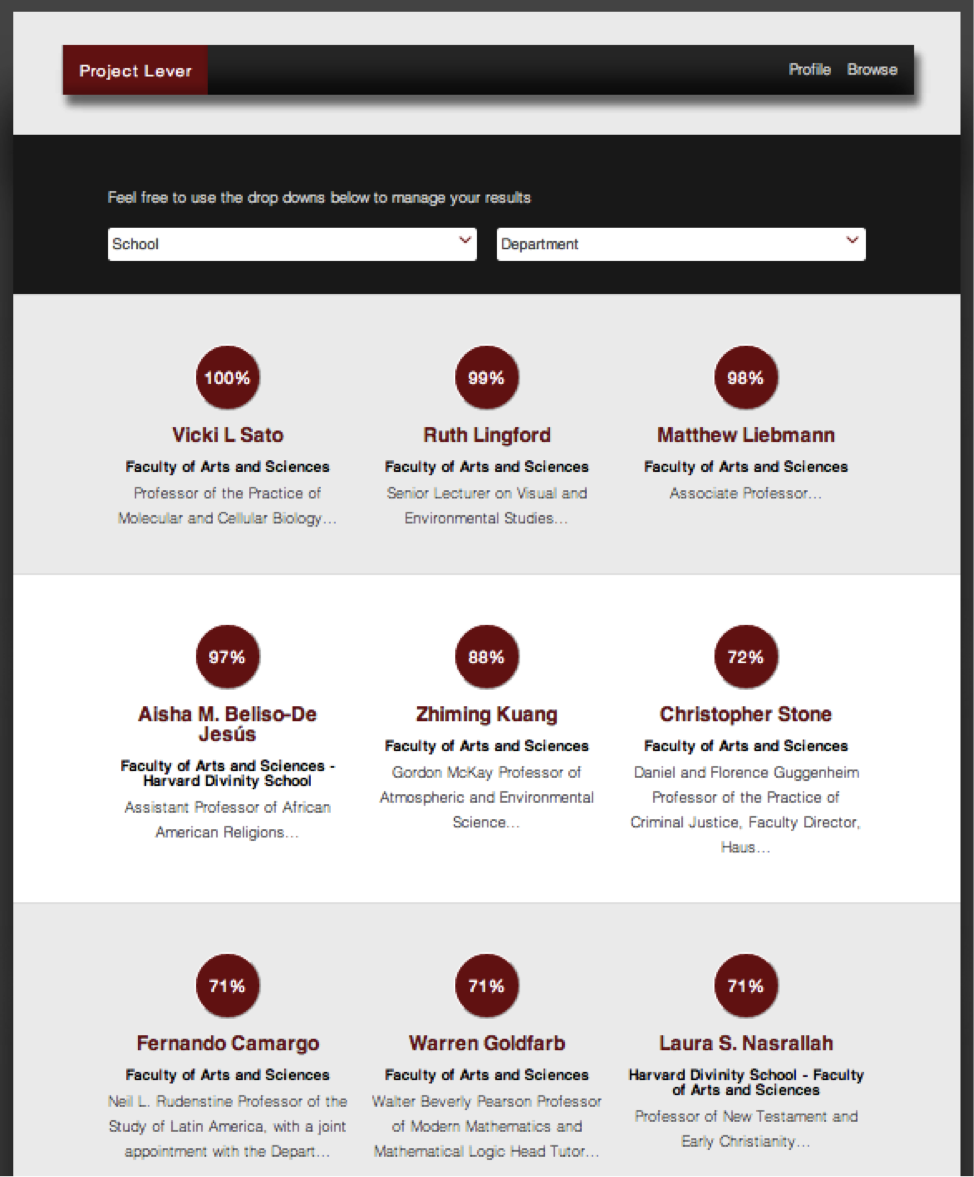“You will find only what you bring in.” - Master Yoda
With April almost around the corner, a lot of junior students start fretting about finding thesis advisors for next years. In our conversations with students looking for academic mentors, we often hear this idea of having “one and only” academic mentor, and if only that one mentor could agree to meet with them and read their drafts, life would be perfect. I believe this idea is responsible for a lot of stress on college campuses right now.
To some extent, our own system on Project Lever encourages thinking that there might be one perfect mentor. Note how after pasting your research interests, the system comes back with “Top Matched Advisor”, “Top Matched Course”, and a “Top Matched Thesis”:
Academic systems today often encourage developing a single mentor. When I was a student at Harvard Government Department, we had to submit a “thesis contract”, or a document specifying that a certain faculty member agreed to be my mentor, and I wanted to be his advisee. My thesis advisor, Prof. Timothy Colton, became a wonderful mentor, who coached me not only on academia but also in life and a career. I was quite fortunate to be his advisee.
However, I soon found that I had to build an academic network rather than rely on an advice from a single brilliant person. I spoke with statisticians, writers, historians, and fellow students that worked on similar projects before. Every single piece of advice was invaluable as I continued to develop ideas and work on my project.
In our conversations with thought leaders in higher education, we at Project Lever continue hearing advice about developing networks rather than finding one perfect mentor. Kerry Ann Rockquemore, President of National Center for Faculty Development and Diversity, authored an excellent blog post called “When it comes to Mentoring, the More the Merrier.” We could not agree more.
We at Project Lever work for a future where each student has his or her network of mentors that can be helpful. We are working to offer a wide selection of potential faculty advisors, each of whom might be knowledgeable about certain topics. So, if it doesn’t work out on the first try… just try again!
Best of luck to all of you as you are choosing academic mentors. Any tips for your peers?






















